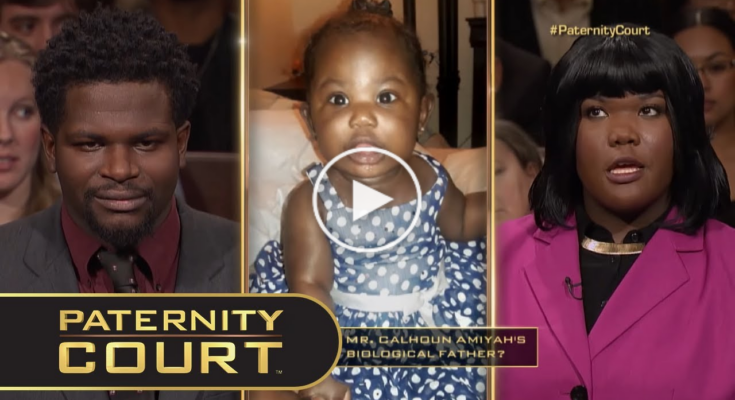This scientific article delves into a compelling paternity dispute presented in the video “Calhoun v. Proutt.” The case revolves around Mr. Calhoun’s denial of being the biological father of Amiyah, Ms. Proutt’s daughter. He alleges doubts about the timing of conception and accuses Ms. Proutt of involvement with other men. The court deems it necessary to conduct a DNA test to establish the child’s biological parentage. This article examines the significance of DNA testing in resolving such disputes and emphasizes the importance of effective co-parenting for the child’s well-being.
Mr. Calhoun firmly denies being Amiyah’s father, citing inconsistencies in the timing of conception and suspicions of Ms. Proutt’s involvement with other men. In response, Ms. Proutt maintains that Mr. Calhoun is indeed the father and attributes his denial to him being placed on child support. The court acknowledges the need for a DNA test to determine the child’s biological parentage.
During the proceedings, both parties present their arguments and evidence to support their claims. Mr. Calhoun submits a text message conversation as evidence, prompting the judge to quip, “Jerome, hand me that evidence. You trying this case, ain’t you, Mr. Calhoun?”. Additionally, Ms. Dawson, Ms. Proutt’s godsister, provides testimony supporting the claim that Ms. Proutt had relationships with other men, stating, “My godsister was having unprotected sex with another man”.
The paternity dispute takes an emotional toll on all parties involved. Ms. Proutt admits to feeling “humiliated and embarrassed” due to public accusations on social media. Trust issues and a lack of open communication between Mr. Calhoun and Ms. Proutt exacerbate the conflict, with Mr. Calhoun stating, “It’s really a hard pill to swallow”.
The court emphasizes the crucial role of DNA testing in establishing biological parentage, stating, “We have to get our own”. Following the DNA test, it is confirmed that Mr. Calhoun is indeed Amiyah’s biological father, with the judge declaring, “When it comes to six-month-old Amiyah Calhoun, it has been determined… you are the father”. The conclusive results provide clarity and a solid foundation for the child’s future relationships and legal rights.
Despite the DNA test results, the video highlights the need for effective co-parenting for Amiyah’s well-being. The judge urges, “You need to be in her life. We gonna really call it the way it is, you set yourself up”. The court underscores the importance of transparent communication and cooperation during co-parenting.
Effective co-parenting is essential for Amiyah’s development, granting her the opportunity to build meaningful relationships with both her biological parents. The court stresses the significance of putting aside personal differences and focusing on the child’s best interests.
The case of “Calhoun v. Proutt” emphasizes the significance of DNA testing in resolving paternity disputes. It underscores the importance of credible evidence and witness testimonies to establish the truth in such cases. The emotional toll on all parties involved highlights the need for open communication and cooperation during co-parenting.
Ultimately, the case demonstrates the impact of paternity disputes on familial relationships and underscores the importance of prioritizing the child’s best interests in resolving such conflicts. Effective co-parenting not only benefits Amiyah’s well-being but also fosters a nurturing and supportive environment for her growth.
This case serves as a poignant reminder of the complexities surrounding paternity disputes and the need for thorough and accurate determination of biological parentage. The use of DNA testing offers a definitive resolution, providing clarity for the child’s future and ensuring that her rights and well-being are safeguarded.
In conclusion, “Calhoun v. Proutt” highlights the profound significance of DNA testing and co-parenting in resolving paternity disputes and lays the foundation for constructive familial relationships based on honesty, trust, and the mutual commitment to the child’s welfare.



